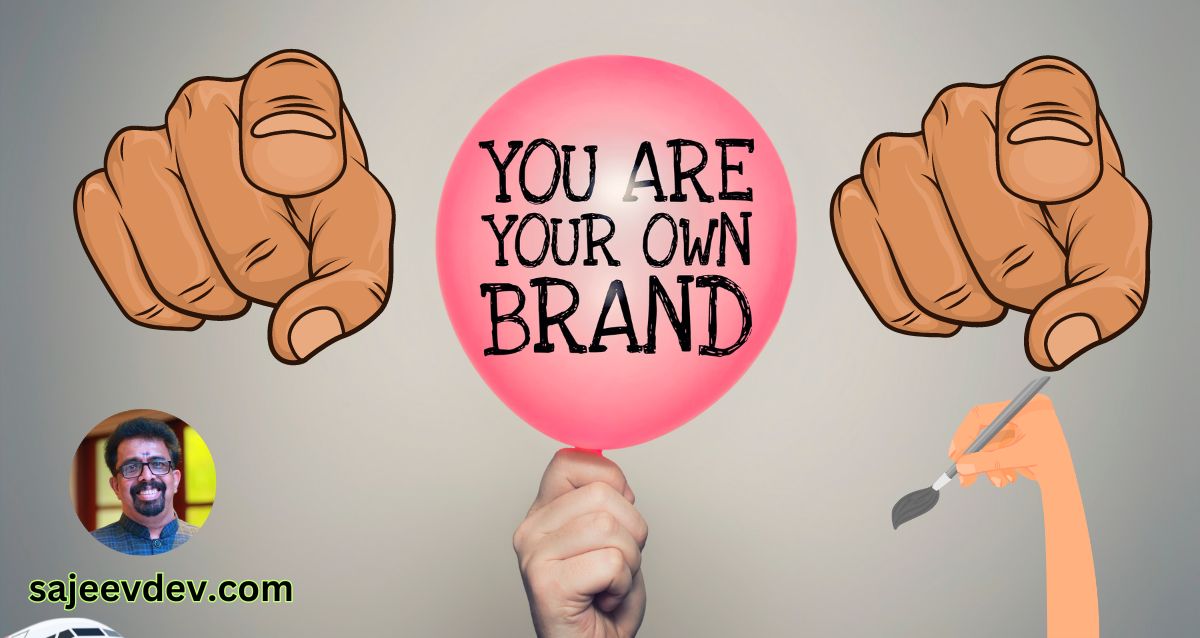Life can be metaphorically described as a canvas where every individual functions as the artist responsible for their own masterpiece
Life can be metaphorically described as a canvas where every individual functions as the artist responsible for their own masterpiece. This concept underscores the inherent power each person possesses to shape their existence through the decisions they make and the actions they take. Each choice serves as a stroke of paint on this canvas, contributing to an intricate portrayal of one’s identity, values, and life experiences.
The canvas of life is not static; it is a dynamic and evolving representation of our journey. Just as an artist layers colors and textures to create depth and meaning, individuals constantly add new experiences and learnings, which enrich their narrative. Embracing the idea that life is a canvas encourages a proactive approach to challenges and opportunities. When faced with obstacles, one can view these moments as chances to mix new colors into their work, transforming potential setbacks into stepping stones for growth and empowerment.
Moreover, recognizing life as a canvas instills a sense of responsibility. It highlights the importance of intentional choices, as each decision contributes to the bigger picture of one’s life narrative. Just like artists often reflect on their work and seek to improve upon it, individuals can examine their past actions and decisions to foster self-awareness and personal development. This reflective practice allows one to adjust their trajectory and align their actions more closely with their core values and aspirations.
In this way, the metaphor of life as a canvas promotes a creative, thoughtful approach to living, encouraging individuals to envision and realize their unique masterpieces. By embracing self-empowerment, one can add layers of richness and depth to the canvas of life, ultimately creating a work that is not just a reflection of who they are but also a testament to their journey towards fulfillment and authenticity.
The Importance of Self-Empowerment
Self-empowerment is a cornerstone of personal development and plays a critical role in enhancing an individual’s overall quality of life. It is the process through which individuals recognize their inherent strengths, capabilities, and value. When one embraces self-empowerment, they take ownership of their decisions and actions, leading to a more fulfilling existence. This sense of agency fosters a profound shift in perspective, enabling individuals to navigate life’s challenges with greater confidence.
One of the key aspects of self-empowerment is the realization that one has the ability to shape their own destiny. This awareness encourages individuals to set goals that align with their values and aspirations. Through this proactive approach, individuals cultivate resilience against adversity, as they learn to view challenges as opportunities for growth rather than insurmountable obstacles. As they develop this mindset, they also cultivate an increased level of self-confidence; they begin to trust in their decision-making abilities and their capacity to manage their lives effectively.
The psychological benefits of self-empowerment are profound. Studies show that individuals who feel empowered are more likely to experience lower levels of stress and anxiety. This is largely due to their proactive stance, where they take deliberate actions to influence their circumstances. Furthermore, self-empowerment can improve interpersonal relationships. When individuals are aware of their worth and capabilities, they are more likely to establish healthy boundaries, communicate effectively, and engage in meaningful connections.
In embracing self-empowerment, individuals can transform their lives, stepping into their roles as authors of their own narratives. They can foster greater happiness and satisfaction in their lives by taking proactive steps towards their goals and harnessing their inner strength. This profound journey toward self-discovery and empowerment ultimately leads to a more enriched and satisfying life.
Owning Your Decisions
Making independent decisions is a fundamental aspect of self-empowerment. Each choice we encounter, big or small, plays a significant role in shaping our life trajectory. When individuals take ownership of their decisions, they not only assert their autonomy but also demonstrate a commitment to their values and beliefs. This pivotal ability serves as the cornerstone for a fulfilling and authentic life.
The process of decision-making often becomes clouded by the influence of external opinions and societal expectations. Consequently, people may feel compelled to seek validation from others before acting. However, relying on external assurance can hinder personal growth and diminish the confidence necessary for effective self-governance. Embracing one’s instincts and values leads to a sense of liberation, allowing individuals to navigate their lives with purpose and clarity.
Trusting yourself in the decision-making process fosters a more profound understanding of your desires, strengths, and aspirations. When you take responsibility for your choices, you cultivate resilience and adaptability. Each decision serves as a stepping stone, guiding you closer to your goals while helping you learn from both successes and setbacks. This experiential learning process enriches your journey, providing invaluable insights that empower your future choices.
Moreover, owning your decisions encourages a proactive mindset. Rather than waiting for circumstances to dictate your path, you become an active participant in constructing your life narrative. By acknowledging the significance of your decisions, you embrace the freedom that comes with self-determination. Ultimately, this transformative outlook equips you to face challenges with confidence, ensuring that you remain the artist of your own life, crafting it with intention and authenticity.
Aligning Choices with Values
In our pursuit of a fulfilling life, aligning choices with personal values is paramount. Core values serve as the guiding principles that inform our decisions, shaping our identity and influencing our relationships. It is essential to first identify what these values are to navigate through life’s complexities more effectively.
Begin the process of identifying personal values by reflecting on moments in your life where you experienced profound satisfaction or disappointment. What underlying principles were at play during these moments? For instance, if a situation where you felt fulfilled involved helping others, this could indicate a core value of altruism or community service. Conversely, if you felt discontent in a particular job, consider the values that were compromised in that role. Was it creativity, autonomy, or integrity that was lacking? By conducting this self-assessment, you can gain clarity about what genuinely matters to you.
Once you have identified your core values, the next step is to consciously make choices that reflect them. For example, if one of your key values is health, you might choose to prioritize exercise and nutritious meals even amidst a busy schedule. Aligning actions with values enhances overall satisfaction, fostering a sense of purpose in both personal and professional spheres. This alignment can also improve decision-making skills, as choices are made not in isolation, but in harmony with deeply held beliefs.
Living authentically in accordance with one’s values not only contributes to overall well-being but also cultivates resilience during challenging times. When faced with obstacles, having a clear understanding of what matters most can provide the motivation to persevere. Ultimately, aligning choices with core values empowers individuals to create a life narrative that is both meaningful and fulfilling.
Overcoming Fear and Doubt
Fear and doubt are two of the most common psychological barriers that can impede an individual’s journey toward self-empowerment. These emotions often manifest as a lack of confidence and can lead to a cycle of inaction, hindering personal growth and self-expression. It is essential to recognize that these feelings are universal; everyone experiences moments of insecurity. What distinguishes individuals is how they choose to address and manage these impediments.
One effective strategy for overcoming fear is to confront it head-on. This can be achieved by identifying the specific fears that hold you back and analyzing the root causes. For instance, fear of failure often derives from societal expectations or past experiences. By reframing these fears into manageable challenges and setting realistic goals, individuals can foster resilience. It is important to adopt a growth mindset, which involves viewing obstacles as opportunities for learning rather than insurmountable barriers.
Additionally, surrounding oneself with a supportive community can significantly facilitate the journey of self-empowerment. Engaging with like-minded individuals who encourage and inspire personal growth can engender a sense of belonging, thus alleviating feelings of doubt. Sharing experiences and insights with others can also provide valuable perspectives that challenge negative self-perceptions. Remember that vulnerability in expressing fears can create stronger bonds and open pathways to collective healing and empowerment.
Moreover, incorporating mindfulness practices such as meditation or journaling can enhance self-awareness and emotional intelligence. These practices enable individuals to observe their thoughts without judgment, creating space for self-reflection. The act of documenting one’s fears can often reduce their intensity and provide clarity on actionable steps toward improvement. Embracing such techniques not only leads to personal development but also cultivates a resilient mindset to tackle life’s inevitable challenges.
Creating a Vision for Your Life
Creating a vision for your life is a fundamental step in embracing self-empowerment. A well-defined vision serves as a guiding star, illuminating the path toward achieving your dreams and aspirations. To embark on this journey, it is crucial to understand the importance of goal setting and visualization. These two elements not only help shape your vision but also provide clarity and direction.
Start by reflecting on what truly matters to you. Consider your passions, values, and the experiences you wish to have. This introspection will allow you to identify the areas of your life that need focus and rejuvenation. Once you have a clear understanding of your core aspirations, begin setting SMART (Specific, Measurable, Achievable, Relevant, and Time-bound) goals. These structured objectives will serve as actionable steps, facilitating the translation of your dreams into a concrete reality.
Visualization plays a crucial role in solidifying your vision and maintaining motivation. Imagine the life you want to create, envisioning not just the outcomes but the journey as well. This visualization should be detailed; picture yourself in various scenarios that align with your goals. Engaging with this mental imagery can significantly boost your confidence and commitment, making the prospect of achieving your vision increasingly tangible.
To this end, practical steps such as creating a vision board can be immensely helpful. A vision board is a visual representation of your goals, incorporating images, quotes, and affirmations that resonate with your aspirations. Place it in a location where you will see it daily, serving as a constant reminder of your vision and motivating you to take action towards making it a reality.
By thoughtfully crafting a vision for your life, setting meaningful goals, and employing visualization techniques, you are taking significant strides toward creating a future that reflects your true desires, ultimately empowering yourself to realize the life you envision.
The Role of Support Systems
Support systems play a crucial role in the journey toward self-empowerment. These networks encompass family, friends, mentors, and colleagues who can encourage and uplift individuals during challenging times. Building a strong support system not only fosters resilience but also contributes to personal growth, enabling individuals to explore and harness their artistic potential in life. Surrounding oneself with positive influences can provide the validation and motivation needed to step out of comfort zones and pursue one’s passions.
To cultivate a supportive network, it is essential to focus on the quality of relationships rather than the quantity. Engage with people who inspire, challenge, and stimulate personal development. These trusted allies can provide constructive feedback and share insights that broaden perspectives. Regular communication is vital in maintaining these relationships; thus, making an effort to check in, share experiences, and celebrate achievements is important. This ongoing exchange of support can reinforce a sense of belonging and encourage a mindset conducive to self-empowerment.
Moreover, it is equally important to reflect on the dynamics of existing relationships. A healthy support system should be reciprocal, where both parties uplift each other. If certain relationships drain energy or foster negativity, it may be necessary to reassess their role in your life. By seeking out individuals who align with personal values and aspirations, you can create an environment that nurtures your artistic self-expression and facilitates growth.
In summary, a strong network of supportive individuals significantly enhances the path to self-empowerment. These relationships act as a foundation upon which one can build resilience, gain confidence, and realize their creative possibilities in life. Investing time and effort into cultivating a positive support system is a powerful step toward becoming the artist of your own life.
Embracing the Journey
Life is often perceived as a series of destinations, marked by milestones such as graduations, job promotions, and personal achievements. However, it is essential to recognize that the journey itself is just as significant, if not more so, than the goals we aspire to reach. Embracing the journey allows us to appreciate the experiences that shape our existence and cultivate a deeper understanding of ourselves and the world around us.
Throughout our lives, we encounter various challenges and obstacles that may seem daunting at first. These experiences serve as opportunities for growth, encouraging us to develop resilience and adaptability. By facing these trials head-on, individuals can learn valuable lessons about perseverance, determination, and the importance of maintaining a positive outlook. Embracing such challenges not only prepares us for future endeavors but also enhances our appreciation for the moments of joy and triumph that punctuate our lives.
Equally important is the practice of savoring each moment as it comes. Life is fleeting, and often the beauty lies in the small, seemingly mundane experiences. Engaging fully in the present moment, whether that involves enjoying a quiet cup of coffee or sharing laughter with friends, enriches our lives and reinforces the notion that happiness is not solely found in achieving our goals, but also in the experiences that weave the fabric of our existence.
By fostering a mindset that values the journey, we become more attuned to the lessons life presents. This approach not only enhances our self-empowerment but also cultivates a profound sense of gratitude and fulfillment. Ultimately, it is through the combination of embracing challenges and appreciating the everyday moments that we truly become the artists of our own lives.
Taking action is fundamental in transitioning from thoughts and aspirations to tangible outcomes. Here are some practical steps to motivate and guide you in this transformative journey
Embracing self-empowerment requires not only self-reflection but also decisive action. The concept of being the artist of your own life entails actively shaping your reality and the path you wish to pursue. Taking action is fundamental in transitioning from thoughts and aspirations to tangible outcomes. Here are some practical steps to motivate and guide you in this transformative journey.
First, start by identifying clear goals. What do you wish to achieve? Whether it is enhancing your career, nurturing personal relationships, or pursuing a hobby, defining your objectives will provide clarity and direction. Break these goals down into smaller, manageable tasks. A well-structured plan increases the likelihood of successful completion and minimizes feelings of overwhelm.
Next, prioritize your tasks based on urgency and importance. Focus on high-priority actions that align closely with your goals. This strategic approach ensures that your efforts yield maximum results, propelling you further along your chosen path.
Additionally, consider developing a consistent routine that supports your self-empowerment journey. By allocating specific times for certain tasks, you create space in your life for progress while establishing discipline. Routines build momentum and foster habits that reinforce your goals.
Furthermore, seek out resources and partnerships that can enrich your experience. Surround yourself with individuals who inspire and uplift you. This community will encourage you to maintain accountability and will further empower you on your journey.
Finally, adopt a mindset that welcomes adaptability. Your path will likely have unexpected twists and turns, requiring you to reassess and adjust your plans. Embracing flexibility allows you to evolve as you navigate life’s challenges, reinforcing the notion that you are the artist of your own life. By taking consistent, proactive steps, you cultivate an enriching narrative that reflects your true self and aspirations.



